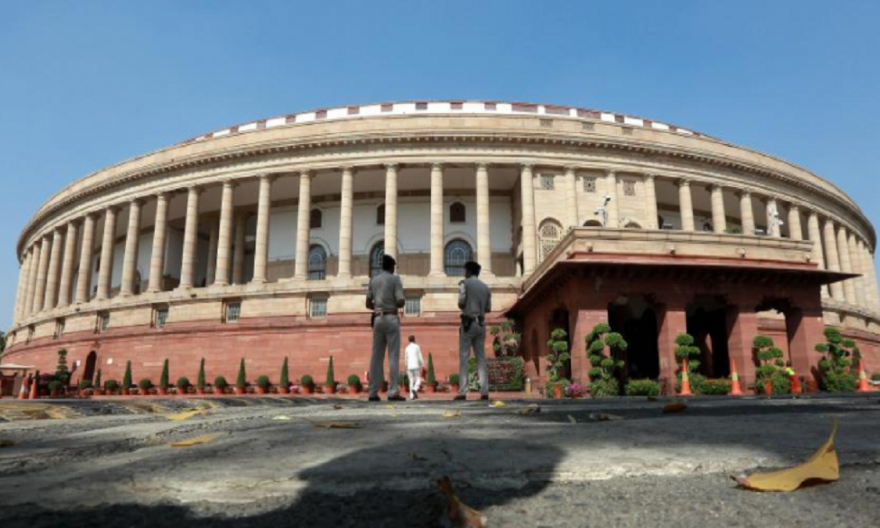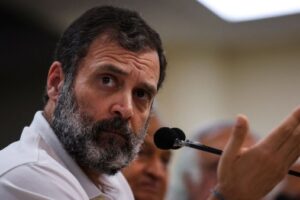
I liked what seasoned lawyer and president of the society of Indian Law Firms, told me in a recent interview about some of the tobacco laws prevailing in India and why the Health Ministry needs to take a relook. If the ministry is not keen, then why not the Parliament? Bhasin hinted at the recent approval by the US Food and Drug Administration (FDA), in mid-October 2021, for marketing of e-cigarette products in that country. For Bhasin, it—actually-revitalised the debate around the ban on e-cigarettes in India. The ban came through the enactment of the Prohibition of Electronic Cigarettes (Production, Manufacture, Import, Export, Transport, Sale Distribution, Storage and Advertisement) Act, 2019. But Bhasin said the entire process was wrong and convoluted, and it was in total contrast to the prevailing law for regular cigarettes and tobacco products. So why did the Health Ministry push the ban? He wanted me to take a serious re-look at the Cigarettes and Other Tobacco Products (Prohibition of Advertisement and Regulation of Trade and Commerce, Production, Supply and Distribution) Act, 2003 (COTPA) which – said Bhasin – does not put a ban on the production, supply, distribution and sale of cigarettes and tobacco products. It is common knowledge that the COTPA was instead enacted to prohibit advertising and regulate production, supply and distribution of cigarettes and tobacco products. Provisions were also made to regulate sales of cigarettes and tobacco products. The government’s control was simply limited to cigarette and tobacco advertisements, and regulate trade and production. And there, claimed Bhasin, lies the biggest problem.
So what should India debate, and seriously debate? (1) Whether there was any need to bring in another law dealing with e-cigarettes; (2) and then, whether the new law is constitutionally valid; and (3) and finally, whether it will subserve the purpose for which it was enacted. As of now, there are no answers. The Health Ministry officials are simply not talking.’So Bhasin wanted me to look into the health issues. Nicotine is prohibited for use in any food item, the production and sale of tobacco cigarettes that contain nicotine is allowed as a legitimate business activity, although subject to certain conditions. For the record, nicotine and tobacco are the same products. Webster’s Third New International Dictionary defines nicotine as tobacco.
So, what are the reasons, rationale and justifications for Parliament to enact a law that prohibits production, distribution and sale of e-cigarettes, asked Bhasin? There is strong and solid merit in his argument.
It was in 2014 when officials of the Ministry of Health & Family Welfare debated the pros and cons of electronic nicotine delivery systems (ENDS) and a host of doctors, scientists and health officials gave examples of scientific evidence which indicated that ENDS and similar technologies that encourage tobacco use are hazardous for active and passive users, and have an adverse impact on public health. Four years later, the ministry banned ENDS including e-cigarettes, heat-not-burn (HNB) devices, vapes, e-sheeshas, e-nicotine flavoured hookahs, and other similar products. And then on 18 September 2019, the Ministry of Law and Justice, through a Gazette Notification (ordinance) banned the sale, storage and manufacture of e-cigarettes.
Finance Minister Nirmala Sitharaman said the decision was taken following recommendations from a group of ministers, headed by her. The ordinance was repealed by the E-Cigarettes Act of 2019. The government said the ban was to protect the youths, most vulnerable to the health hazards of e-cigarettes. A statement from the government justified the decision and said the following: “E-cigarettes were promoted as a way to get people out of their smoking habits, but reports have shown that many people are not using it as [a] weaning mechanism, but are rather addicted to it. These novel products come with attractive appearances and multiple flavours, and their use has increased exponentially and has acquired epidemic proportions in developed countries, especially among youth and children.”
Bhasinsasid if the intention was not to prohibit or ban e-cigarettes altogether, a simple amendment in the COTPA would have served the purpose. E-cigarettes would stand to be covered under the definition of “production” in sub-section (k) of section 3. Section 30 of the COTPA empowers the central government to add any tobacco products in the schedule.
But the government dug its heels. It said the need to bring in a separate law essentially arose as the legislature wanted to impose a complete ban on the production, manufacture, distribution and sale of e-cigarettes, and that necessitated the new law being enacted in 2019.
So let’s look at the laws.
An electronic cigarette is defined under section 3(d) of Prohibition of Electronic Cigarettes (Production, Manufacture, Import, Export, Transport, Sale, Distribution, Storage and Advertisement) Act, 2019, includes heat-not-burn (HNB) products. It does not specify whether tobacco ought to be a necessary ingredient in the product to classify as a HNB product. Most HNB products are actually tobacco products.
The Indian lawmakers should have drawn a distinction between an electronic cigarette that does not use tobacco vis-a-vis a tobacco product – i.e. heated tobacco products – and irrespective of mode of combustion (heat or burn), the latter ought to have fallen under the ambit of the COTPA.
This is the point Bhasin reiterated time and again. He said even the US FDA has recognised HNBs, and authorised their marketing in the US based on extensive scientific research.
And it brings us to the most crucial point: Is law constitutionally valid? Control can be exercised over an industry, or a proposed industry, by means of rules and regulations. However, control cannot signify a total prohibition or ban of an activity. The ordinary meaning of, and judicial interpretation of, the word control only signifies the power to regulate, and not the power to kill or damage or destroy the industry via complete prohibition. Bhasin says such a law is unconstitutional, and beyond the powers vested with the Union of India under the Constitution, especially when global scientific research data confirm that e-cigarettes are substantially less harmful by about 95% than conventional cigarettes. The UK House of Commons’ science and technology committee has observed that e-cigarettes “lack the tar and carbon monoxide of conventional cigarettes – the most dangerous components”.
The Indian government must understand that nicotine is not the main culprit in cigarettes. There are more than 7,000 chemicals in tobacco smoke and at least 250 are known to be harmful, including hydrogen cyanide, carbon monoxide and ammonia, which make cigarettes deadly. Public health experts worldwide emphasise the need to decouple nicotine from tobacco, with e-cigarettes playing a major role in doing so. It is time to take a relook.





